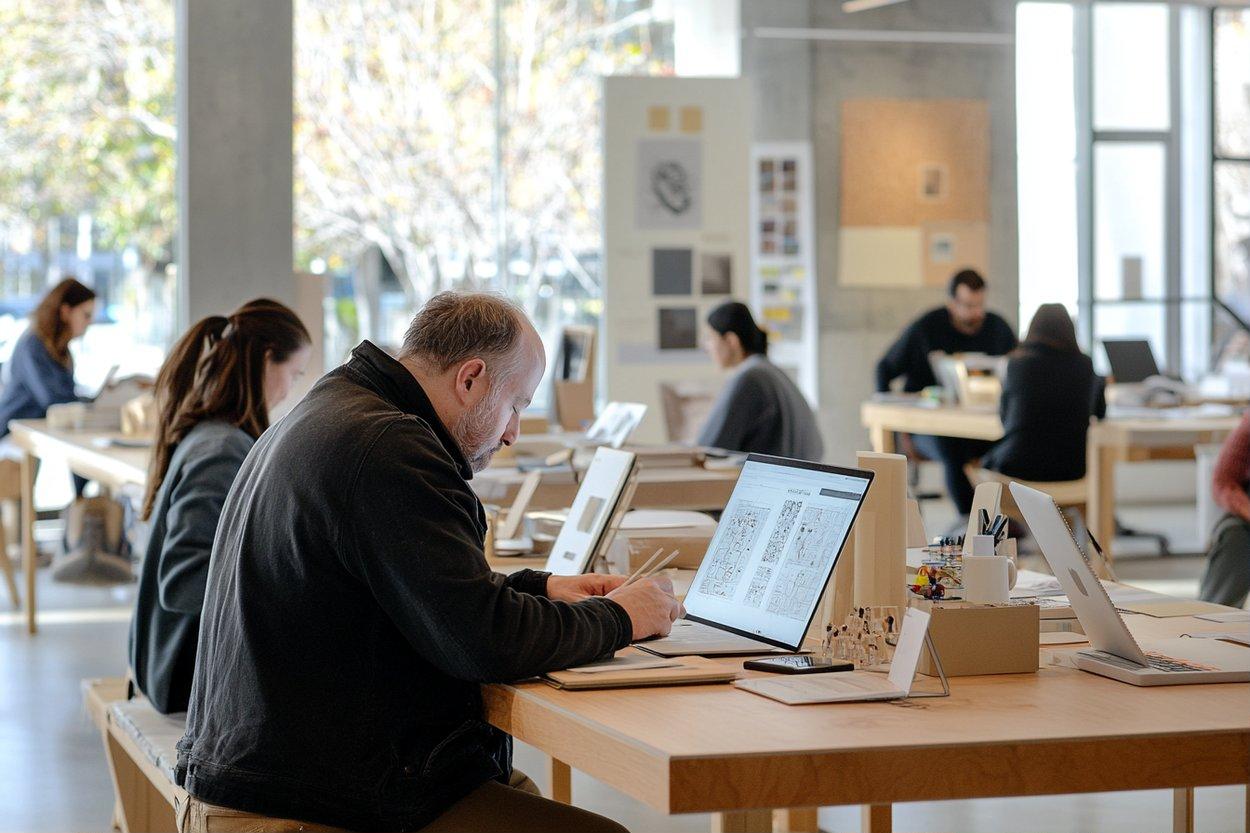Coworking Spaces: Revolutionizing the Modern Workplace
The concept of coworking spaces has transformed the traditional office environment, offering a flexible and dynamic alternative for professionals across various industries. These shared workspaces provide a unique blend of community, collaboration, and productivity, catering to the evolving needs of today's workforce. As businesses adapt to changing work patterns and technological advancements, coworking spaces have emerged as a popular solution for entrepreneurs, freelancers, and even established companies seeking innovative office solutions.

How do coworking spaces differ from traditional offices?
Coworking spaces fundamentally differ from conventional offices in their approach to workspace design and functionality. Unlike traditional offices with fixed layouts and assigned desks, coworking spaces offer a variety of work areas, including open-plan desks, private offices, meeting rooms, and communal areas. This flexibility allows members to choose the environment that best suits their daily needs, whether it’s a quiet corner for focused work or a collaborative space for team projects.
Moreover, coworking spaces often feature modern amenities and services that may be out of reach for small businesses or individual professionals in traditional office settings. These can include high-speed internet, printing facilities, reception services, and even wellness areas or cafes. The shared nature of these resources makes them more cost-effective for members while providing a professional and well-equipped workspace.
What impact do coworking spaces have on workplace design?
The rise of coworking spaces has significantly influenced modern workplace design trends. These spaces prioritize flexibility, comfort, and aesthetics to create environments that inspire creativity and productivity. Many coworking spaces incorporate elements such as natural lighting, ergonomic furniture, and biophilic design to enhance the overall work experience.
Designers of coworking spaces often focus on creating diverse areas within a single location, catering to different work styles and preferences. This might include quiet zones for concentrated work, vibrant common areas for networking and collaboration, and cozy nooks for informal meetings or relaxation. The emphasis on adaptable layouts and multi-functional spaces has inspired traditional office designs to become more flexible and employee-centric.
How does technology integrate with coworking spaces?
Technology plays a crucial role in the functionality and appeal of coworking spaces. Most coworking facilities offer state-of-the-art technological infrastructure to support the diverse needs of their members. This typically includes high-speed Wi-Fi, smart meeting room booking systems, and advanced audiovisual equipment for presentations and video conferencing.
Many coworking spaces also leverage technology to enhance the member experience through dedicated mobile apps. These apps can facilitate various tasks such as booking workspaces, accessing the building, connecting with other members, and managing membership services. Some spaces even incorporate Internet of Things (IoT) devices to optimize space utilization and improve energy efficiency.
Can coworking spaces enhance productivity?
Coworking spaces are designed with productivity in mind, offering environments that can potentially boost work efficiency and output. The variety of workspace options allows individuals to choose settings that best suit their tasks and work styles, potentially leading to increased focus and productivity. Additionally, the presence of other professionals working alongside can create a motivating atmosphere that encourages productivity through a phenomenon known as “co-working synergy.”
Many coworking spaces also offer amenities that can contribute to productivity, such as on-site cafes for quick refreshments, quiet zones for focused work, and breakout areas for informal meetings or brainstorming sessions. The ability to separate work from home life by having a dedicated workspace can also help improve work-life balance and overall productivity for remote workers and freelancers.
What types of professionals and businesses use coworking spaces?
Coworking spaces attract a diverse range of professionals and businesses, reflecting the changing nature of work in the modern economy. Freelancers and remote workers often utilize these spaces to escape the isolation of home offices and benefit from a professional environment. Startups and small businesses find coworking spaces attractive due to the flexibility and cost-effectiveness they offer compared to long-term office leases.
Increasingly, larger corporations are also embracing coworking spaces as part of their real estate strategies. These companies may use coworking facilities to provide flexible workspace options for their employees, establish satellite offices in new markets, or house project teams temporarily. Additionally, coworking spaces have become popular among digital nomads, providing them with consistent work environments as they travel.
How do coworking spaces compare in terms of costs and features?
When considering coworking spaces, it’s important to compare the costs and features offered by different providers. Here’s a comparison of some well-known coworking space providers:
| Provider | Basic Membership Cost (Monthly) | Key Features |
|---|---|---|
| WeWork | $300 - $600 | Global access, 24/7 building entry, business-class printers, phone booths |
| Regus | $200 - $450 | Worldwide locations, business lounge access, mail handling |
| Spaces | $250 - $500 | Creative environment, networking events, dedicated desk options |
| Impact Hub | $200 - $400 | Social impact focus, global community, skill-sharing workshops |
| Industrious | $350 - $650 | Premium amenities, private offices, wellness rooms |
Prices, rates, or cost estimates mentioned in this article are based on the latest available information but may change over time. Independent research is advised before making financial decisions.
The coworking industry continues to evolve, offering innovative solutions to the changing needs of the modern workforce. As businesses and professionals seek more flexible, collaborative, and technologically advanced work environments, coworking spaces are likely to play an increasingly significant role in shaping the future of work. By providing adaptable workspaces, fostering community, and leveraging technology, these spaces offer a compelling alternative to traditional office settings, catering to the diverse needs of today’s professionals and businesses.






